Date: 1 Jan 1999.
Location: Xian Sheng’s house, Taman Melawati
Table of Contents
(A) Why do you fear GOD?
In response to a follower’s question, “Why do you fear GOD?”, Xian Sheng acknowledged it as a good question. He added, “GOD does not even want you to pray to GOD. Why should you fear GOD?”
Xian Sheng then redirected the question to the followers, asking, “If GOD does not even want you to pray to GOD, why must you fear GOD?” He hinted that the answer lies within the question itself—If GOD does not even want you to pray to GOD, so why must you fear GOD?
He elaborated that precisely because GOD does not want us to pray to HIM, we have even more reason to fear GOD.
Xian Sheng further explained that GOD created Heaven and Hell, yet GOD doesn’t want us to pray to Him. This, he emphasised, is all the more reason why we must fear GOD.
The underlying truth is this: if we do not fear GOD, we would not even pray to GOD. Thus, the answer is embedded in the statement: “If we do not fear GOD, then why should we even pray to GOD?”
Xian Sheng summarised the key reasons why we must fear GOD even more:
GOD created Heaven and Hell.
GOD does not want us to pray to HIM.
Brother John Yap referenced the phrase “GOD is love.” Xian Sheng responded by stating that this reflects the Christians’ misconception of GOD.
He posed the question: “All the words in the dictionary put together, and more than that, and you still could not describe GOD. So how can you describe GOD with just one word: love?”
Xian Sheng cited a phrase known only to Baitiangong followers—”GOD does not even want you to pray to HIM”—to illustrate that no mainstream religion truly comprehends this truth about GOD. Yet, some claim to encapsulate GOD in a single word: love.
Christians use the word “love” to describe GOD because they hold the wrong conception of GOD. He clarified that Christians pray incorrectly by praying to Jesus as GOD.
Xian Sheng explained that while Jesus embodies love, and he himself also embodies love, GOD encompasses both love and hate, and more than that, as words alone cannot describe GOD. The terms “love” and “hate” are insufficient, which is why he added, “and more than that.”
Xian Sheng then asked the followers if they understood how immense Jesus’ love is, to the point where people idolise him as GOD. Immediately, he urged the followers not to idolise him either, fearing they might likewise elevate him as GOD.
(B) Sons of God.
Xian Sheng stated that if he were to come to Earth and preach as God reincarnate, many would believe and follow him. He asked the followers why he would say this.
Xian Sheng explained that Jesus acquired the title of God reincarnate during his lost years, when he travelled to India and Tibet. There, Jesus learned about reincarnation from the Hindus and Buddhists. However, the Hindus adapted the concept of reincarnation to include the idea that Gods could be reborn in human form.
Jesus used the term “son of God” because, during that era, many in Hinduism were referred to as sons of God. Even in Buddhism, the term Bodhisattva is used to describe a divine being. Nevertheless, Buddhism does not believe in the concept of a God and does not refer to Buddhas as God.
Since ancient times, people across the world have called themselves sons of God. A follower remarked that Chinese Emperors referred to themselves as “Sons of Heaven.”
Xian Sheng referred the followers to the chapter “Gods from the Stars?” which he read to them from the book The Unexplained Files: Enigmas of Mind, Space and Time (pp. 67–71). The article cites Chapter 6 of Genesis from the New English Bible:
“When mankind began to increase and spread all over the earth and daughters were born to them, the sons of Gods saw that the daughters of men were beautiful; so they took for themselves such women as they chose… In those days, when the sons of the gods had intercourse with the daughters of men and got children by them, the Nephilim were on earth. They were the heroes of old, men of renown.“
Xian Sheng questioned whether these were truly sons of God. He suggested that they could, in fact, be aliens.
Thus, the term “sons of God” has been widely used since ancient times, and there are many sons of God across the world.
Xian Sheng encouraged the followers to purchase the book The Unexplained Files: Enigmas of Mind, Space and Time. It is available on the market, though it is expensive.
(C) Love Nothing except GOD?
Xian Sheng reiterated that the question, Why must you fear GOD? is a good one, and asked why we do not instead say We love GOD.
Nevertheless, Xian Sheng clarified that there is nothing stopping us from using phrases such as We love GOD or Love nothing except GOD. He confirmed that these expressions are also acceptable.
However, Xian Sheng stated that he prefers the phrase Fear nothing except GOD. He explained that if we love nothing except GOD, but should we ever fear human beings, we would lose GOD. He repeated that fearing humans leads to losing GOD.
He elaborated further: if humans were to persecute us—as they did to Xian Sheng during his tumultuous 1980s ordeal, when the government, media and police falsified facts, incited weaker followers to betray him with lies, framed him for inciting racial violence, and publicly shamed him with fabricated sexual allegations—many would have caved in and thus lost GOD. He noted that they are very fond of using these underhanded tactics.
(D) If you do not fear GOD.
Xian Sheng explained that if we do not fear GOD, the consequences are what we see in the Western world. It has become common practice in the UK, the United States, and Europe to pass laws permitting same-sex marriage.
We must ask ourselves a frank question: “Are they praying to GOD?” These are the people who claim that GOD is all love, and because they say GOD is all love, they have passed laws allowing gay marriages. This is because they do not fear GOD but love GOD.
If they truly feared GOD, they would not have permitted gay marriage, which is an abnormality that goes against GOD’s creation. Xian Sheng explained that these are the consequences of people not fearing GOD, leading them to pass these laws.
Once again, Xian Sheng encouraged the followers to purchase the book The Unexplained Files: Enigmas of Mind, Space and Time to read, as it covers many topics, including aliens, UFOs, and other subjects of interest.
Xian Sheng held up the book Jesus Lived in India: His Unknown Life Before and After the Crucifixion by Holger Kersten and said that it is difficult to obtain. He stressed that the book is highly important because it reveals the truth about Jesus’ travelling to India during his lost years and living there after surviving the crucifixion.
Xian Sheng revealed that when Christians say they love GOD, they actually love Jesus and do not love GOD. He elaborated further, stating that they love Jesus so much that they have begun telling lies to protect him. This apparently started during Paul’s time, and these lies have been carried forward till this day.
Xian Sheng held up the book The Unexplained Files: Enigmas of Mind, Space and Time and said that it is a good book. He believes the book is still available and asked the followers to visit MPH to try to purchase it. He read aloud a topic titled Fleshing Out the Spirit (The Unexplained Files, p.20).
Xian Sheng mentioned watching a documentary in which a sect of Muslims also practises ritualistic body piercing, similar to Tamil Hindus. They would chant “Allahu Akbar” and pierce their bodies with needles or skewers. He asked which Muslim sect1 they belonged to.
These Muslims believe they will not die from these piercings because their faith is so strong that it will protect them from grievous injuries. However, the documentary showed an individual who pierced his body through the side, collapsed, and subsequently died from his wounds.
Xian Sheng mentioned watching another documentary featuring a woman who nailed herself to a cross for over an hour and survived her penance. The woman was re-enacting the crucifixion of Jesus to experience the pain he endured, driven by her love for Jesus. Xian Sheng added that she did this out of love for Jesus, not love for GOD.
He explained that the reasoning is very simple: if one loves GOD, they would not harm GOD’s creation. He emphasised that they must not and proceeded to clarify that one must never kill another person except in self-defence or to protect a life. He reiterated that when a person is cornered with their back against the wall and facing imminent death, they may fight back and kill their assailant to save their own life. Outside of such a scenario, Xian Sheng stressed that one must not kill.
Regarding inflicting pain upon oneself or others, Xian Sheng said that GOD has created humans and given us something beautiful. Therefore, we should not cut off our own hands or someone else’s hands.
(E) Are aliens the sons of Gods in the Bible?
Xian Sheng mentioned that the book The Unexplained Files contains many fascinating topics and read some of the contents: the Kirlian Aura, did Christ die in Kashmir and Gods from the Stars, where he read aloud to the followers about sons of God.
Xian Sheng then proceeded to read a passage taken from Chapter 6 of Genesis in the New English Bible Edition. It states: “When mankind began to increase and to spread all over the earth and daughters were born to them, the sons of the gods saw that the daughters of men were beautiful; so they took for themselves such women as they chose… In those days, when the sons of the gods had intercourse with the daughters of men and got children by them, the Nephilim [or ‘fallen ones’] were on earth. They were the heroes of old, men of renown.“
He emphasised that this text is from the Bible, specifically the Old Testament, and it speaks of the sons of Gods. These sons of Gods came down, saw that the daughters of men were beautiful, and married them and stayed on Earth. He posed the question, “Could they be the sons of Gods?”
(F) A lie told often enough becomes the truth.
Xian Sheng stated that Jesus did not die on the cross. Instead, he travelled to India, got married, and had two sons and one daughter. Jesus lived to be over 80 years old.2
Brother John Yap asked Xian Sheng why Jesus did not stop the false narrative of his resurrection or instruct his apostles to prevent it from spreading.
Xian Sheng explained that Jesus was constantly being pursued by the Romans, forcing him to keep moving. Jesus fled to Damascus where he met Paul.3
Brother John Yap asked why Paul did not reveal the truth that he met with the living Jesus.4
Xian Sheng responded with a question: What would have happened if Paul had revealed the truth that Jesus was heading to Iran from Damascus? A follower suggested that soldiers would have pursued him. Xian Sheng added that the Romans would have ridden their horses and chariots to chase Jesus. The followers agreed that Paul likely fabricated a false narrative to protect Jesus.
Xian Sheng explained that the lie that Jesus died on the cross and was resurrected had such a powerful influence on Jews and Gentiles that it led many to join the early church. The apostles and Paul believed they were doing a good job by spreading this narrative.
He quoted the phrase found in the English language: “A lie told often enough becomes the truth,” often attributed to Vladimir Lenin.
(G) Xian Sheng: Don’t even tell lies for me.
Xian Sheng emphasised a principle he had often shared with the followers: “Don’t even tell lies for me.” He stressed that they should either speak the truth or remain silent.
To illustrate his point, Xian Sheng posed a hypothetical question: “Where is Xian Sheng?” He explained that if someone were to ask this question, the followers should not lie by saying they did not know when they actually knew his whereabouts. Instead, they could choose to remain quiet or respond with, “Why ask me? Ask someone else.”
He clarified that this hypothetical scenario was meant to discuss a situation where someone might try to track him down by asking, “Where is your Xian Sheng?” He reiterated that lying by saying they did not know when they clearly knew where he was was unacceptable.
Xian Sheng suggested that the followers could deflect the question by asking, “Why do you think I know where Xian Sheng is?” This approach would avoid lying while also protecting him. He added that if the person asking the question appeared threatening, such as carrying a gun, the followers were not obligated to reveal his location.
He then drew a parallel to the time of Prophet Muhammad, when the Quraysh tribe of Mecca decided to assassinate him by sending multiple young men from each Quraysh clan to strike him down with swords. When these young men asked where Muhammad was, his followers would claim to be Muhammad and were struck down and killed.
Xian Sheng explained that this was how Muhammad managed to escape from Mecca and flee to Medina. Many of Muhammad’s followers sacrificed their lives to help him slip away.
Xian Sheng said, “I don’t even want you to die for me.” He clarified that he did not want them to sacrifice themselves by claiming to be him.
He concluded by noting that in today’s world, we do not expect people to kill openly because we live in a lawful society. Nevertheless, there are still people who might resort to killing.
(H) Do people believe GOD is love?
Xian Sheng shared some news about what was happening around the world to highlight the stark contrast between the love for GOD and the violence wrought in HIS name.
In Gujarat, India, Hindus were burning Christian churches and schools. (Refer to Anti-Christian Violence on the Rise in India)
Similar religious violence was occurring in South Africa5 and Indonesia. He mentioned that several lives had been lost due to these acts of violence.
Xian Sheng asked the followers to question whether these people were truly praying to GOD. He answered that, in reality, they were not praying to GOD.
Furthermore, Xian Sheng asked, “Did they believe that GOD is love?”
Xian Sheng then presented his argument against this notion. He stated that if they truly believed GOD is love, they would not kill anyone. If they believed GOD is love, they would say that GOD wants them to love their neighbour.
The problem lay in their claim that Jesus is love—not GOD. Another issue was that they did not or might not fear GOD, which was why they dared to kill.
Referring back to the book The Unexplained Files: Enigmas of Mind, Space and Time, he said that there were so many cases presented in it that he could read to the followers.
(I) The sky people in the ancient world were UFOs.
Xian Sheng read an extract from the chapter Gods from the Stars: “When beings from ‘heaven’ would descend to take human brides, is found not only in this obscure biblical verse. It is also present, for example, in the well-known Greek myths about the amorous adventures of their gods. Indeed, in classical times, any noble Greek worth his salt would try to trace his ancestry through heroes and princes to one or other of the Olympian deities.” (The Unexplained Files, p. 68).
Continuing his explanation about the term ‘sons of Gods’, he noted that even in ancient Greece, nobles who believed themselves worthy would attempt to trace their lineage back to the Olympian deities.
Xian Sheng then referenced the travels of Ulysses6. He read the book and remarked that it was a beautiful book. He asked how many of the followers had read it as well. It is a book about Greek mythology.
He reiterated that the ancient Greeks had tried to connect their ancestry to the Olympian deities—the gods of their pantheon. They believed these gods descended to Earth, engaged in relationships with mortal women, and fathered demigods. Thus, the concept of ‘sons of Gods’ was not new in the ancient world of Jesus’ era.
He continued reading: “Affairs between mortals and beings from another world feature strongly in the folklore of the North American Indians, too.” Even in North America, far removed from West Asia, indigenous peoples spoke of otherworldly beings who descended and had sexual relations with their women.“
He read further: “The Thompson Indians of British Columbia, for example, told how the ‘people of the sky’ once stole a married woman. Outraged, all the creatures of the Earth started a fruitless war against the powerful ‘sky people.’ To reach the sky, the ‘Earth people’ built a flimsy structure, which collapsed when the ‘sky people’ retaliated. Massive casualties resulted, and many kinds of animals were extinguished.” Xian Sheng explained that these ‘sky people’ were, in fact, what we now recognise as UFOs.
He continued: “In the version told by the Quinault Indians of Washington, the aggressors were said to come from the sky country, where the stars are.” Xian Sheng clarified that the UFOs descended from the sky but could easily be mistaken for stars at night.
He added that these advanced beings, with their superior technology, could effortlessly destroy vast areas using weapons like lasers or napalm-like bombs, extinguishing people and many kinds of animals.
He read on: “The abduction of two maidens to the stars finally brought about conflict and disaster for the tribes. Such unions did not always end in tragedy, however. The Māori indirectly ascribe their civilisation to an illicit love affair between the daughter of a chief and a prince of ‘the country in the sky.’ The intruder was caught by the Māori chief but was later accepted as his son-in-law. A Māori deputation was allowed to visit the ‘sky country’, where they learned invaluable arts from the superior beings there.“
“Similar tales of close ties between celestial beings and mankind can be found in widely separated cultures. The Machiguenga Indians of the Peruvian jungle, for instance, tell of people of the heavens who came to Earth on a shining road in the sky. Japanese myth, meanwhile, claims that access to Earth from the heavens was once provided by a kind of bridge, enabling the gods to pay frequent visits.“
Xian Sheng concluded by stating that these ‘sky people’ were, in reality, UFOs. The book compiled actual recorded tales passed down by North American Indians, Japanese, and South American Peruvians.
The ‘sons of Gods’ who descended from the heavens were, in fact, UFOs. People across the ancient world spoke of ‘sky people’ who came down, engaged in relationships with human women, and fathered hybrid offspring. He referenced Genesis, Chapter 6, which describes how the ‘sons of Gods’ came down, saw the beauty of human women and fathered children with them.
He continued reading: “What, then, are we to make of these curious legends about relationships between people and ‘sky beings’? Orthodox anthropology has no standard explanation for such stories, in which the link with what we now term ‘paranormal’ phenomena is self-evident. Some of the legends even echo the UFO abduction stories of our own time. And it should be noted that a proportion of claimed UFO encounters include some kind of sexual interaction with the aliens—a clear parallel to the supposed mixed marriages between “gods” and the “daughters of men” in ancient tales.“
(J) UFOs, sons of Gods and the Bermuda Triangle.
Regarding the ‘sons of Gods’, some people believed they were extraterrestrial, while others did not.
Xian Sheng read the findings of an English archaeologist named T.C. Lethbridge (The Unexplained Files, p. 69), who had conducted in-depth research on the topic of the ‘sons of Gods’.
Lethbridge drew upon mythological evidence of ancient vehicles, referred to as fiery chariots, which swept Elijah up to heaven7. The Hindus had similar stories of godlike figures who possessed remarkable flying machines8.
Xian Sheng noted that the term ‘sons of Gods’ also appeared in Hindu texts, which spoke of divine beings marrying mortal women and fathering children9.
He mentioned the book Chariots of the Gods? by Erich von Däniken, which also discussed ‘ancient astronauts’ bearing similarities to the ‘sons of Gods’.
He summarised that tales of sky beings could be found in both the Bible and ancient Hindu texts. He then asked, “Are they actually UFOs?” and replied, “Maybe.”
Brother John Yap questioned why UFOs had not appeared in China. Xian Sheng responded that they did not know—many missing person cases had been attributed to UFO abductions.
Xian Sheng explained that there were various theories about people disappearing under mysterious circumstances. While some cases involved ships and planes vanishing in the Bermuda Triangle, others were linked to UFO abductions.
He recounted an article he had previously shared with the followers, likely about Flight 19, where the pilot, Lieutenant Charles Taylor, reportedly became disoriented and confused about his location. Taylor told ground control he saw land, even though triangulation placed Flight 19 over the Bermuda Triangle’s waters10.
Xian Sheng questioned whether the pilot had experienced illusions or if they had crossed into another parallel dimension. Once again, he emphasised that the book The Unexplained Files was very important for uncovering more about our world.
(K) Don’t even believe me. Go back and think.
Xian Sheng held up the book Jesus Lived in India by Holger Kersten and urged the followers to try to purchase it. The price stated on the back of the book was USD 14.95.
He said that we could not discuss this with Christians as they would not believe it, and we would be wasting our time. Therefore, the purpose was to inform our children about the truth of Jesus to protect them from being cheated by Christians. They should know the contents of the book.
Xian Sheng mentioned that he did not know the Christians could succeed in converting, but they did. He was told that they possessed long-term patience. They would tell their neighbours to go out, assuring them that they would take care of their children. Then, they would take the neighbour’s children to church to indoctrinate them.
He then questioned how many Baitiangong followers would tell their neighbours to take the day off to enjoy themselves while they looked after their children and preached Baitiangong to them. He replied that Baitiangong followers did not have such a practice, but Christians did.
Xian Sheng and the followers discussed what Brother Tan had witnessed in a hospital. Two ladies from a church visited a patient in the specialist ward and convinced the patient’s gullible brother that he would be cured within three months if he became a Christian. They promised to visit and bless him. The patient died in less than two weeks. Although the patient had not officially become a Christian, he had listened to their preaching. Xian Sheng added that even if the patient had lived longer—up to two months—he would still have died, which contradicted the Christians’ promise of a cure within three months.
Xian Sheng requested the followers not to give false hope to any sick Christian, Hindu or Buddhist by claiming that if they joined Baitiangong, their Xian Sheng could heal them. He emphasised this by saying, “Please don’t, I don’t want. Thank you.”
Xian Sheng used the phrase “Good riddance to bad rubbish” to express his disapproval of people who joined a religion solely to seek healing. He knew he would be lying to himself if he accepted such individuals. Moreover, he said he had better things to do than deal with them. Finally, Xian Sheng concluded that if he was about to die anyway, let him become a Christian11.
Xian Sheng reminded the followers not to forget that if their children were exposed to Christian methods, they could be gullible and believe them—unless they were equipped with the knowledge found in the book about Jesus.
Nevertheless, he acknowledged that when it came to people nearing death in hospitals, Christians were very helpful. In this regard, Xian Sheng even said, “Take my hat off to them” in recognition of their persistence in visiting patients daily. Unfortunately, they were paid to do so.
Christians would tell these patients that Jesus loved them, their sins were forgiven, and they would go to Heaven. Xian Sheng disapproved of their methods, saying, “Please, you don’t go and tell people who are about to die that their sins will be forgiven. No such nonsense.”
Xian Sheng stated that he would not ‘stoop that low’ to cheat a person into becoming a Baitiangong follower. He instructed the followers not to promise healing or similar nonsense to a dying person.
Xian Sheng would only accept when a person joins Baitiangong after truly understanding, using their analytical mind and logical thinking, that Baitiangong is genuinely good for them.
He emphasised that we do not buy people to join Baitiangong, as some individuals could be bought. Xian Sheng said he did not want such people; he wanted a person to thoroughly understand Baitiangong before accepting it.
Xian Sheng said he did not believe anyone in the room had been cheated into joining Baitiangong. He then asked Brother Chang Yoong Wah why he would say that and what evidence supported his claim.
Brother John Yap said, “Don’t believe me. Go back and think.” Xian Sheng repeated the full phrase: “Don’t even believe what I’ve said. You go back and think it over carefully before you can accept to come into Baitiangong, or you prefer you can accept to pray directly to GOD.”
(L) Did Xian Sheng almost die at the Rozabal Shrine?
Xian Sheng read the book Jesus Lived in India by Holger Kersten. However, it was The Unknown Life of Jesus Christ by Nicolas Notovich that prompted him to travel to India to confirm whether Jesus had indeed travelled there.
The book contained factual evidence, including photographs, suggesting Jesus was in India. Inscriptions above the passage to the burial chamber in Rozabal explained that Yuz Asaf had entered the Kashmir valley centuries earlier and dedicated his life to the search for truth (Jesus Lived in India, p. 206).
Engravings on an ancient wall in the ruined Indian city of Fatehpur Sikri, dating back to the reign of King Akbar the Great (1542–1605), read:
“Jesus (Peace be with him) said: ‘The world is a bridge. Pass over it, but do not settle down on it!’”
“Jesus (Peace be with him) said: ‘The world is a proud house; take this as a warning and do not build on it!’”After reading Nicolas Notovich’s book, which referenced ancient parchments about Jesus stored at Hemis Monastery, Xian Sheng decided to visit the site himself.
Though the book claimed Jesus had changed his name to Yuz Asaf, Xian Sheng remained unconvinced until he travelled to Srinagar. He finally believed after kneeling outside Rozabal and praying, “GOD, if Jesus were here, please let me find his descendant.”
If the grave truly belonged to Jesus, his descendants should have been present. Yet, despite searching gardens, jewellery shops, and other locations, Xian Sheng found no trace of them. Their driver also assisted, using an old 1974 photograph of Basharat Saleem (The Unexplained Files, p. 131), but no one recognised him or knew his whereabouts.
During their search for Basharat Saleem, they questioned many people and eventually encountered militants. Xian Sheng later reflected that they were fortunate not to have been killed.
Xian Sheng visited Kashmir in July 1996, a month after the politically unstable 1996 Jammu and Kashmir Assembly elections. There were no other tourists or visitors except for Xian Sheng and three brothers, along with their Muslim tourist guide. Unaware of the ongoing conflict, he wondered why no other tourists were staying on the houseboats. He later learned that militants had shot and killed some people there.
As a reservist officer in the Malaysian Army, Xian Sheng managed to befriend an Indian Army Major, who warned him not to trust his tourist guide. This left Xian Sheng uncertain—if he couldn’t rely on his guide, who could help him find Jesus’s descendant in Srinagar?
The situation was extremely dangerous—anyone could be shot at anytime and anywhere in Srinagar. However, Xian Sheng believed that their actions outside Rozabal Shrine, which had been witnessed by the militants, might have been what saved them.
The tourist guide mentioned that spies were among the militants. A brief, tense exchange occurred when they showed Basharat Saleem’s photograph to the militants.
Xian Sheng then asked his tourist guide to get permission to kneel down and pray outside the Rozabal Shrine. As he and the brothers prayed, he asked, “GOD, if this is Jesus’s grave, please let us find his descendant.” He needed confirmation—otherwise, he would return empty-handed, unsure whether the tomb truly belonged to Jesus.
(M) Xian Sheng was blessed by Jesus’s descendants.
After Xian Sheng and the three brothers finished praying outside the Rozabal Shrine, they toured and visited popular sites in Kashmir. They stopped at jewellery shops to purchase items made from rubies, as Kashmir is famous for its rubies.
While they were shopping, their driver mentioned that he had heard Basharat Saleem was staying somewhere in the area—though this was vague, as “the area” referred to a large part of Srinagar. Nevertheless, they stopped shopping, settled their purchases, and headed towards the general vicinity.
They were fortunate, as Basharat Saleem’s male servant approached them while they were searching for his master and asked, “Are you looking for my master?” When they asked whether his master was Saleem, the servant acknowledged this and led them to his master’s house.
Upon seeing them, Basharat Saleem blessed Xian Sheng and the three brothers.
Though a Muslim, Basharat Saleem did not look like an Arab to Xian Sheng; in fact, he appeared more like a Jew. Saleem passed around a book containing his picture for the followers to verify. He explained that while performing the Salah, he had received a consciousness that Xian Sheng was looking for him, prompting him to dispatch his male servants to find them.
The servant easily spotted them, as they stood out due to their all-white attire.
Xian Sheng noted that they were the only people outside of Jesus’s descendants who possessed the names of Jesus’s wife, two sons, and daughter. These names were kept by Brother Daniel, though unfortunately, Brother Daniel had advised Xian Sheng not to disclose the information.
Xian Sheng planned to return to Hemis Monastery to see the parchment documenting Jesus’s travels with his own eyes.
The text on these parchments was written in the Pali language, not Sanskrit or Tibetan. Xian Sheng explained that Pali was the earliest language used for Tibetan Buddhist texts. Therefore, they might need to find someone—preferably a professor—who understood Pali.
Xian Sheng recalled that during their visit to Hemis Monastery, they had received VIP treatment from the General Secretary of the Buddhist Association.
They were shown the room housing the parchments, but these were kept under lock and key. Xian Sheng respected the monks’ decision not to open the locks, as the parchments were under the care of a Tibetan monk who had returned to Tibet.
Xian Sheng clarified that while Tibet is part of China, Hemis Monastery—a Tibetan monastery—is located in Ladakh, which is administered by the Indian central government.
The monk in question is married, making it difficult to predict when he would return to Hemis Monastery to unlock the safe, allowing Xian Sheng to view the parchments himself.
Recently, Xian Sheng spoke to Brother Daniel to ask whether he was in contact with the Monastery’s Secretary-General, who had become their friend. He wanted to know when the monk would return to open the safe, as he would then fly to India.
Generally, Xian Sheng wished to see the parchments with his own eyes, as the translations had already been done by Nikolai Notovich and published in his book. However, Xian Sheng remained hopeful about uncovering untranslated materials, enabling Brother Daniel to write a new book on the subject.
(N) Did Christians know that Jesus lived in India?
Xian Sheng wanted to inform the followers that Basharat Saleem had told him he was given artefacts proving he was a direct descendant of Jesus.
Xian Sheng told Basharat Saleem in the strongest terms that if he did not present these artefacts to prove that Jesus neither died on the cross nor ascended to Heaven, he would be complicit in allowing Christians—and even Muslims—to continue spreading the lie that he did.
Brother John Yap suggested that Christians would eventually come to know the truth. Xian Sheng retorted that they had already known the truth but were actively ignoring it.
In reply to Xian Sheng’s statement, Brother John said it might be because only a minority of Christians were aware of this truth. Xian Sheng, however, believed that the majority knew about it but refused to accept it. They preferred the lie.
He clarified that Christians accepted the lie over the truth because it comforted them to believe their leader had ascended to Heaven. As an example, he said that if he were to ascend to Heaven, it would be a historic moment that would greatly aid their preaching efforts.
(O) And if Christ be not raised, your faith is in vain.
Xian Sheng stated that the book by Holger Kersten was very well written. It argued that everything practised in Christianity was actually Paulism (meaning that Christians were primarily following the teachings of Paul rather than Jesus).
While searching the book Jesus Lived in India, Xian Sheng instead found in The Unexplained Files that Paul had written in 1 Corinthians 15:17: “And if Christ be not raised, your faith is in vain.”
Xian Sheng urged the followers to remember this verse and repeated it multiple times: “And if Christ be not raised, your faith is in vain.”
This was what St. Paul had written in his letter to his followers in Corinth.
Brother John Yap asked whether this verse was from older Bibles written in Old English or newer translations.12
Xian Sheng clarified that Paul was telling the Corinthians that their faith flourished because Christ had been raised.
Therefore, the book Jesus Lived in India directly contradicted the core Christian belief that Jesus died on the cross, was raised by GOD, and ascended to Heaven. Those who knew the truth about Jesus were thus perpetuating lies to sustain Christianity among the masses.
This was why the Bible essentially represented Paul’s preaching—some even called it Paulism, as his teachings had little to do with Jesus.
Brother John Yap asked whether Xian Sheng was attempting to hurt Jesus Christ by making these claims. He replied that he was helping Jesus as well.
(P) The Vatican is the worst offender.
Xian Sheng repeated a statement he made years ago, that Jesus and Muhammad told him that human beings are stupid. Nonetheless, he tried his best to enlighten whoever he could by preaching Baitiangong to them.
He expressed great pity to the Christians who were being fooled by their clergymen, were gullible to their lies, accepted their lies, and eventually preached these lies.
Therefore, he wanted the Baitiangong followers to prepare their children in such a way that they would not be brainwashed by equipping them with the truth and knowledge that Jesus went to India after the crucifixion and lived in Kashmir to an old ripe age. They would tell the Christian off, saying: “Don’t tell me about Christ now.”
Once again, Xian Sheng quoted what Paul said in 1 Corinthians 15:17: “And if Christ be not raised, your faith is in vain.”
Xian Sheng stated that when Paul wrote his letter to the Corinthians, Jesus was already living in Kashmir, India.
He described the route Jesus took after the crucifixion: He met Paul in Damascus. From Damascus, Jesus travelled through various regions, passing Iran, into Pakistan, through Rawalpindi, and eventually into Srinagar.
Returning to the subject of Christians, he said that they were very successful in telling lies. He referred to them as “successful liars” (regarding the topics of Jesus’ death, resurrection, and ascension).
Once again, Xian Sheng reminded the followers not to tell lies on his behalf.
Brother John Yap asked Xian Sheng whether the Vatican knew Jesus had travelled to India. He replied that the Vatican were the worst offender of all, as they possessed the knowledge and were aware of the problems with the Biblical texts.
(Q) It would be better if there were no Hell.
Xian Sheng asked the followers whether they understood the reasons why they should fear GOD.
Nevertheless, there was nothing to stop anyone from saying, “We love GOD. We love nothing except GOD.”
He repeated his earlier arguments:
If GOD does not want you to pray to HIM, why should you love GOD? There must be a reason.
GOD is both love and hate—and more than that.
There is more reason why you should fear HIM, because HE does not want you to pray to HIM.
GOD has already created Hell.
Xian Sheng expressed his personal belief that it would be better if GOD had not created Hell.
When Xian Sheng started preaching in the late 70s, he consulted a Council and asked, “What is the best thing to happen?”
He proposed, “What if GOD just destroyed everything—the whole universe, everybody, remaining GOD and Heaven?”
(R) Hell is a must for ‘those’ people?
One of the earliest ex-Gold Button holders, Brother Liew Peng Kwai, disagreed with Xian Sheng’s opinion. He insisted that there must be Hell for ‘those’ people to go to.
Xian Sheng said that since Brother Liew insisted on the existence of Hell, Hell had been reserved for him. Xian Sheng explained that Brother Liew had played the fool with GOD—as a Button Holder, he should have had a deeper understanding of Baitiangong’s teachings. Instead, he had traded away GOD to keep his school teaching profession, fearing the government more than GOD during the crackdown in the early 80s.
What was so nice about the teaching profession that it made Brother Liew betray Xian Sheng and the Spiritual Movement by telling the lies the government fabricated to arrest Xian Sheng?
Xian Sheng had been in the teaching profession for nearly his entire career, and he loved teaching. He said that he was still teaching (teaching us in the correct way to pray to the CREATOR).
If Brother Liew truly loved teaching, Xian Sheng suggested that he could have taught privately and made a living outside government schools. He did not have to betray Xian Sheng and Baitiangong by telling lies, and joining the ranks of ‘those’ people to go to Hell.
1 Corinthians 15:12-20. King James Version
12 Now if Christ be preached that he rose from the dead, how say some among you that there is no resurrection of the dead?
13 But if there be no resurrection of the dead, then is Christ not risen:
14 And if Christ be not risen, then is our preaching vain, and your faith is also vain.
15 Yea, and we are found false witnesses of God; because we have testified of God that he raised up Christ: whom he raised not up, if so be that the dead rise not.
16 For if the dead rise not, then is not Christ raised:
17 And if Christ be not raised, your faith is vain; ye are yet in your sins.
18 Then they also which are fallen asleep in Christ are perished.
19 If in this life only we have hope in Christ, we are of all men most miserable.
20 But now is Christ risen from the dead, and become the firstfruits of them that slept.
Extracts from The Unexplained Files: Enigmas of Mind, Space and Time.
Gods from the Stars?
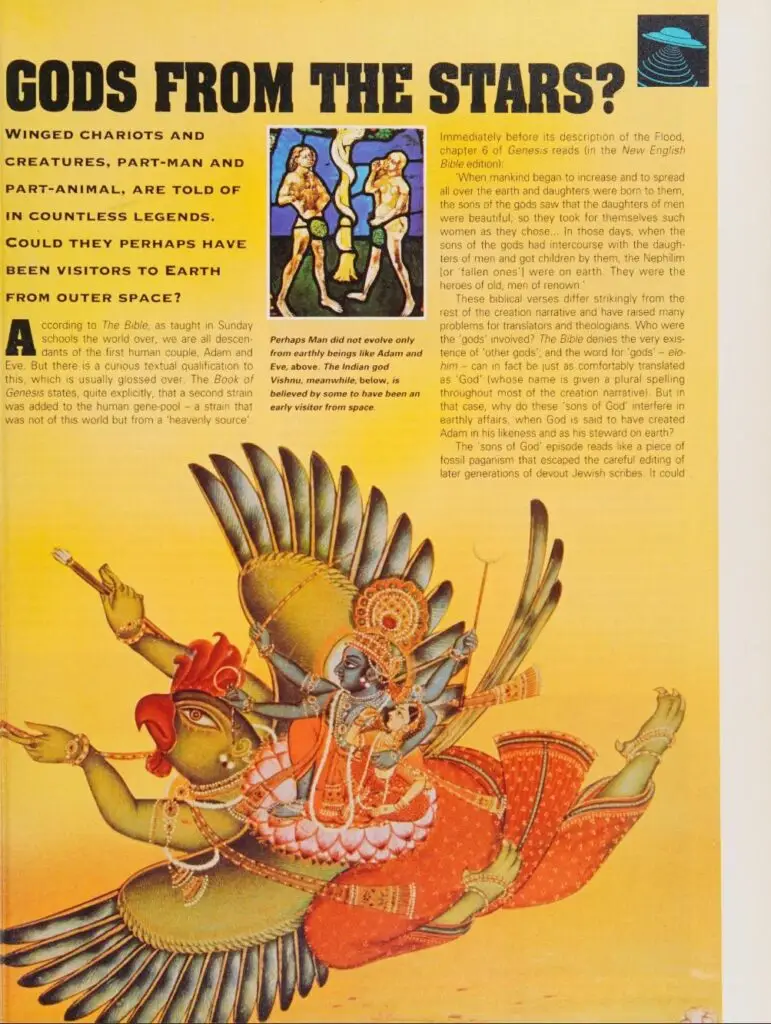
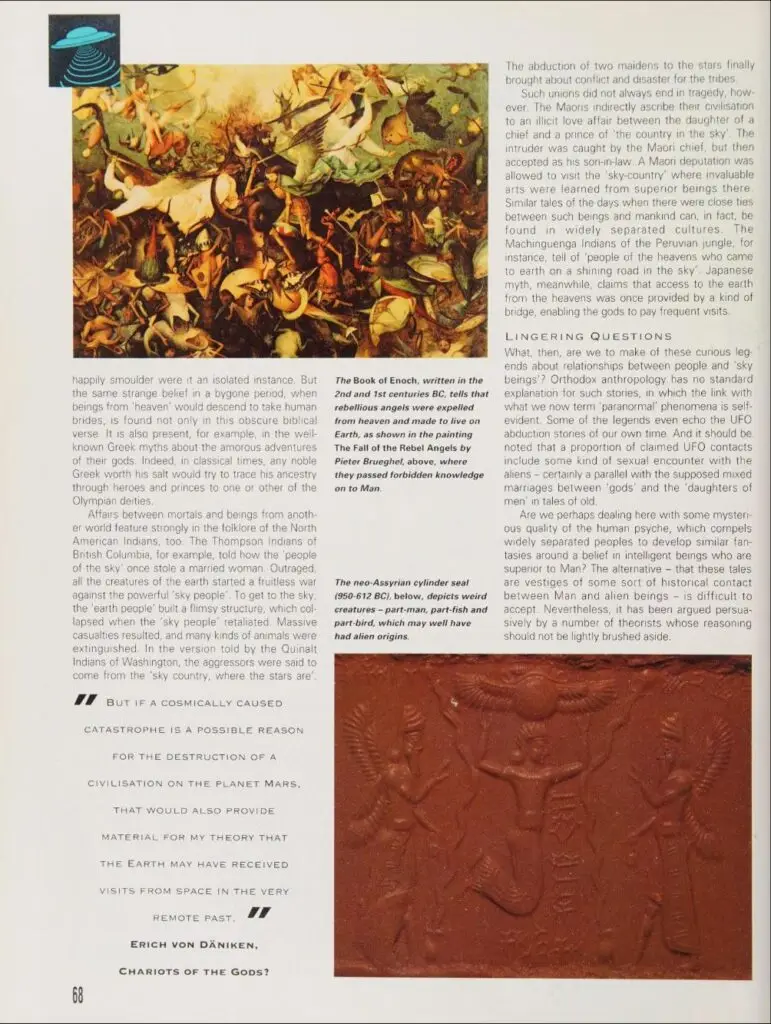
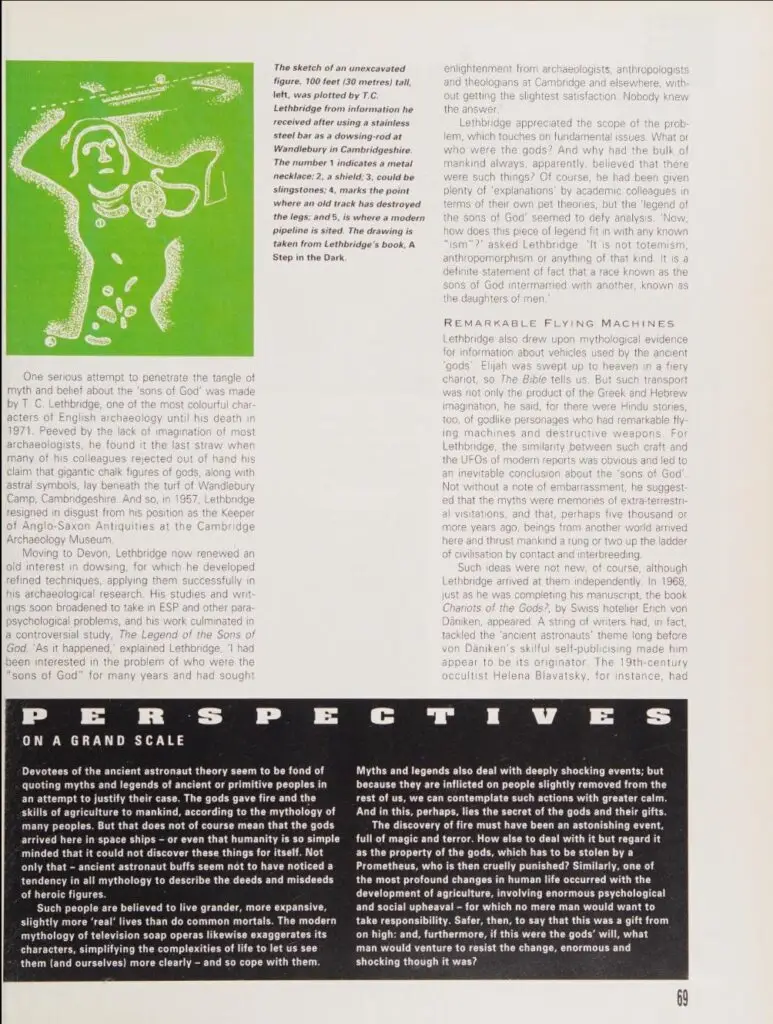
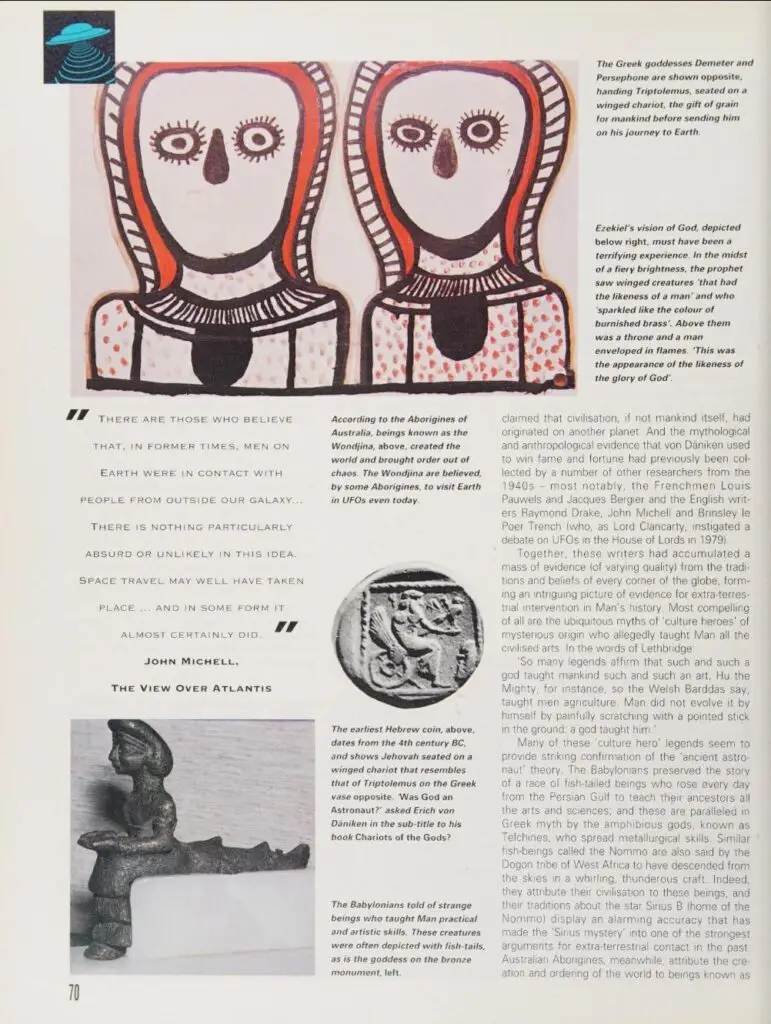
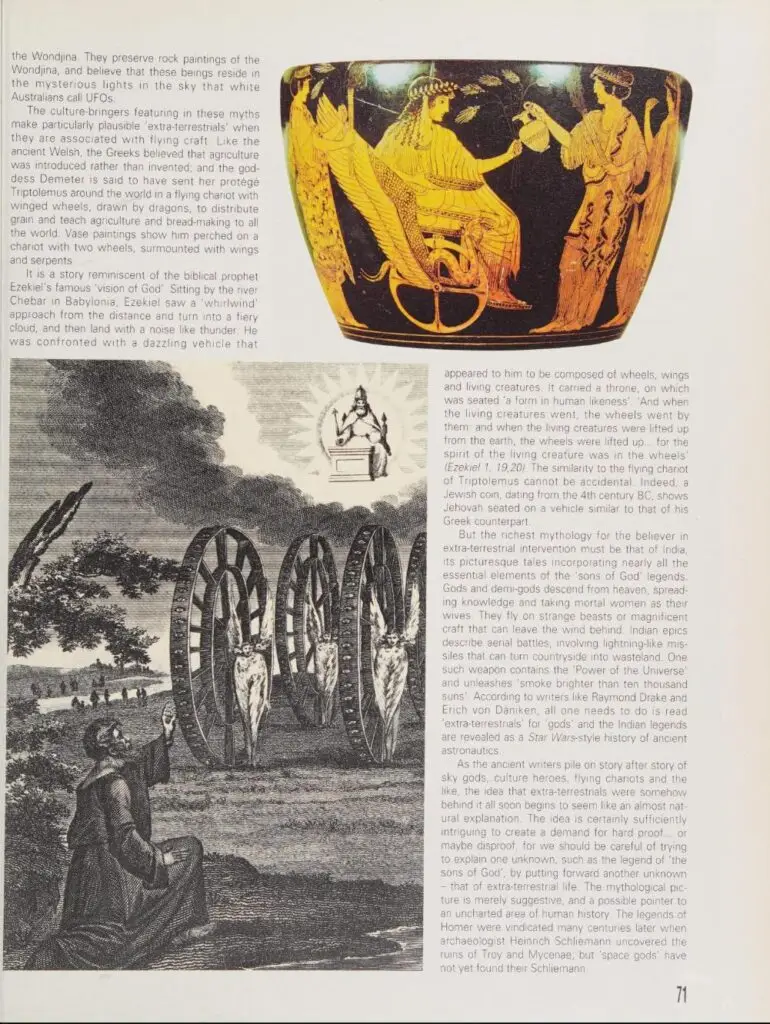
Did Christ Die in Kashmir?

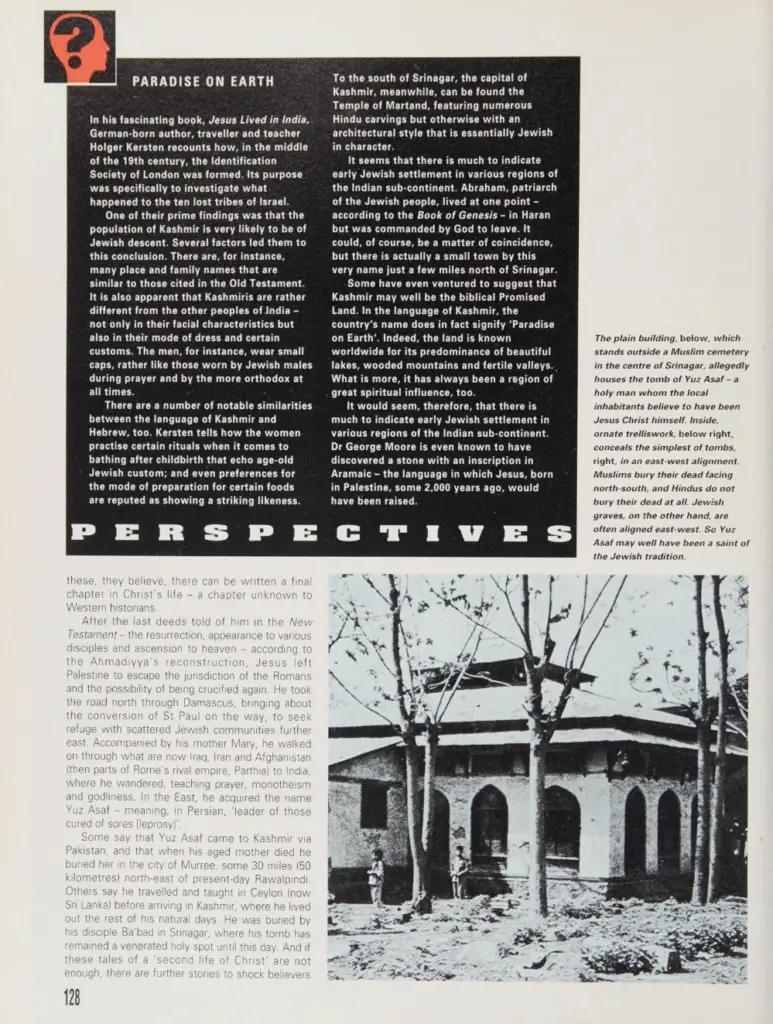
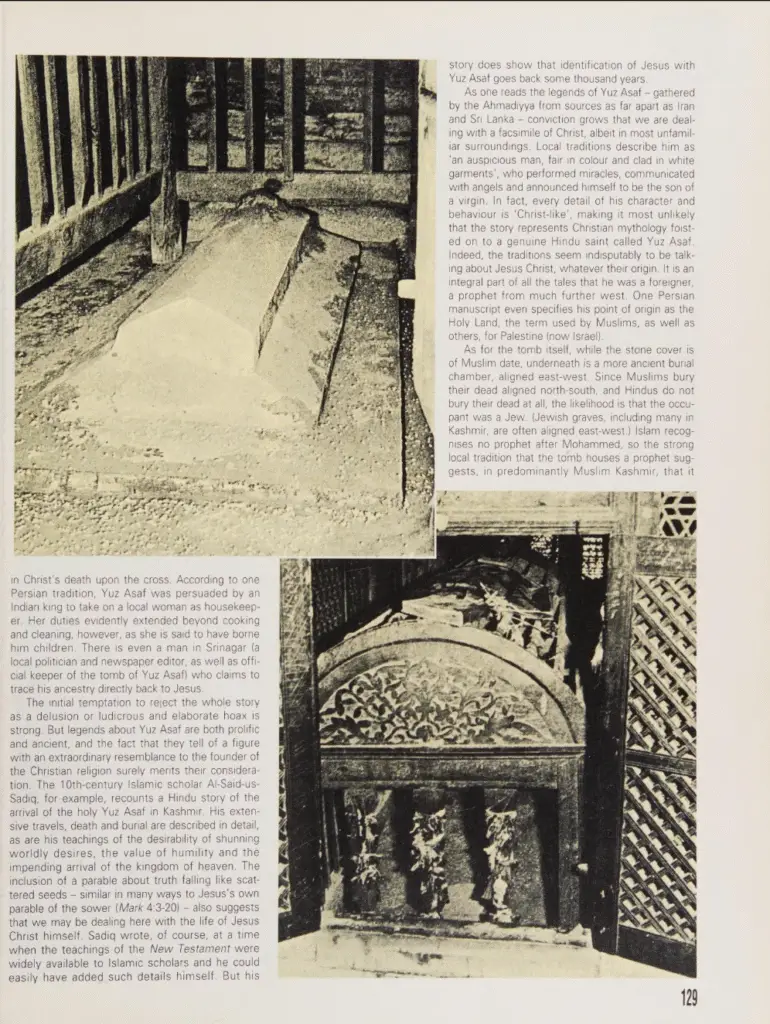
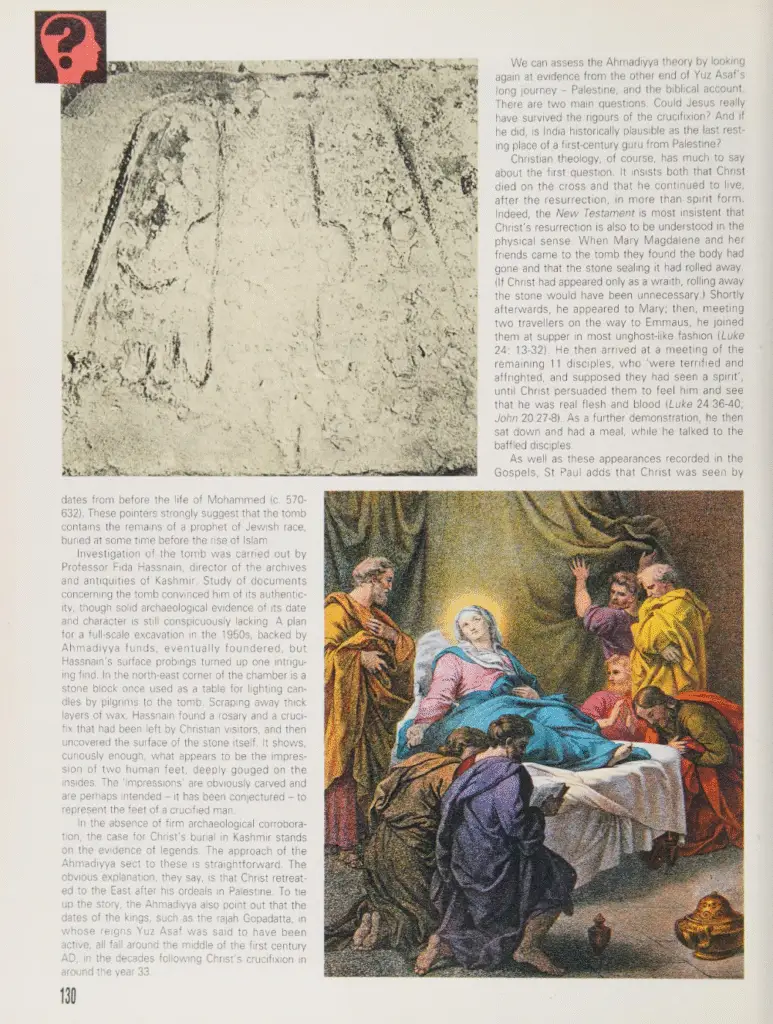
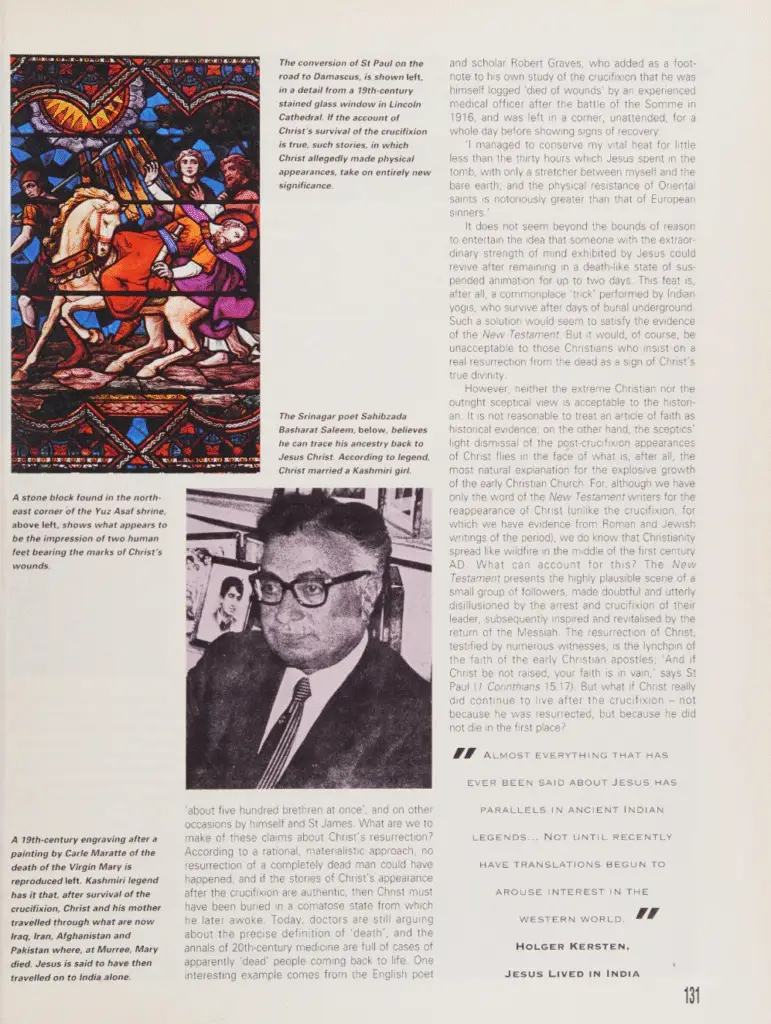
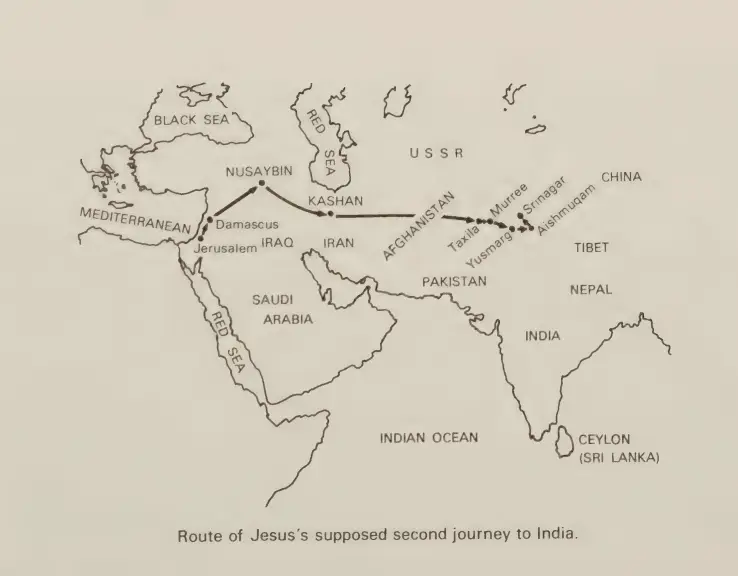
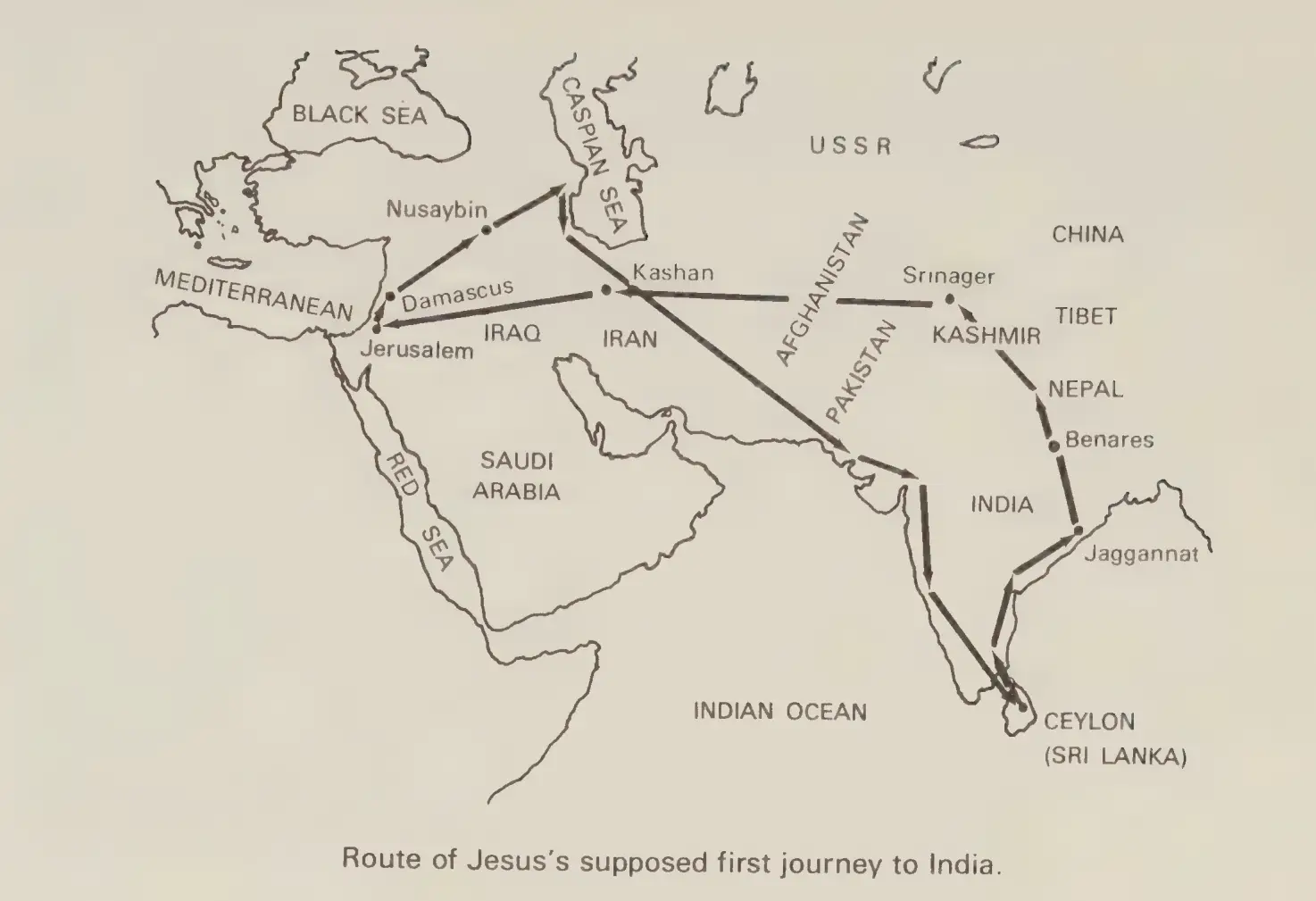
- Xian Sheng may have been referring to Sufism in Iraq.
- According to the chapter "Did Christ Die in Kashmir?" in The Unexplained Files (p. 129), Yuz Asaf was persuaded by an Indian king to take on a local woman as a housekeeper, and she bore him children. The number of children was revealed to Xian Sheng by Basharat Saleem, a descendant of Jesus, during a visit to Srinagar. (See 13B-2000 D24-D25.)
- Jesus left Palestine to escape the jurisdiction of the Romans and the possibility of being crucified again. He took the road north through Damascus, bringing about the conversion of St Paul on the way, to seek refuge with scattered Jewish communities further east. (The Unexplained Files, p.128)
- Acts 9:3-5. New Revised Standard Version Updated Edition: "Now as he was going along and approaching Damascus, suddenly a light from heaven flashed around him. He fell to the ground and heard a voice saying to him, “Saul, Saul, why do you persecute me?” He asked, “Who are you, Lord?” The reply came, “I am Jesus, whom you are persecuting."
- anti-apartheid activities
- The Odyssey, written by Homer
- RSV: 2 Kings 2:11 – "And as they still went on and talked, behold, a chariot of fire and horses of fire separated the two of them. And Elijah went up by a whirlwind into heaven."
- Refer to The Vimana Pushpaka—An Ancient Flying Vehicle That is Described Traveling to Space
- Refer to epic tales from the Mahabharata, Ramayana, and the various Puranas.
- Refer to "Uncertain as to in what position lay the Peninsula of Florida”: The Official Record and the Loss of Flight 19
- The phrase "While the body is real, the soul is the reality" implies that it is more important to save the soul than the body. Saving the soul requires praying to the CREATOR with mind, body, and soul, not believing that salvation comes through faith in Jesus Christ as Lord and Saviour.
- The author of The Unexplained Files did not specify which Bible version was used. However, the verse originates from the King James Version (KJV), where the full text reads: "And if Christ be not raised, your faith is vain; ye are yet in your sins."